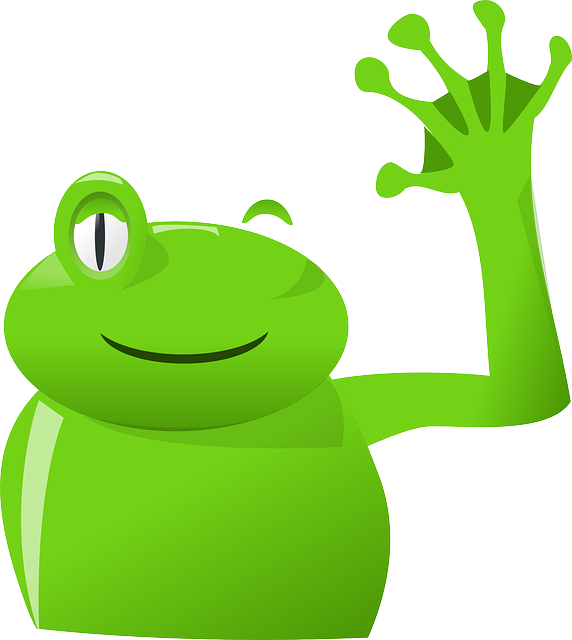regards [noun, plural diminutive]
 It is very common in Dutch to use a diminutive for informal use. “Groetjes” is derived from “groeten” (plural of the noun “groet”), which translates to “greetings”. So “groetjes” are “little greetings” 🙂
It is very common in Dutch to use a diminutive for informal use. “Groetjes” is derived from “groeten” (plural of the noun “groet”), which translates to “greetings”. So “groetjes” are “little greetings” 🙂
The word “groetjes” is often used when saying goodbye or as a closing for informal written communication. In general, when you are unsure whether or not the informal “groetjes” would be acceptable when saying goodbye, you can use “tot ziens” (literally: till seeing). See below for formal alternatives in written communications, and see the Extra for a list with alternative ways to say goodbye.
Examples:
– “Tot de volgende keer! Groetjes!!”
(<informal:> “Until the next time! Bye bye!!”)
– “Doe de groetjes aan Iris!”
(<while leaving:> Say hi to Iris!”. Literally: “Do the little greetings to Iris!”)
– “Doe de groeten aan je ouders!”
(<while leaving:> “Give my regards to your parents!” The use of “groeten” here is appropriate if your intentions are more formal.)
– “Groetjes, “
(<to end a letter or e-mail informally:> “Regards, “)
– “Met vriendelijke groeten, “
(<to end a letter or e-mail more formally:> “With kind regards, “. Literally this translates to: “with friendly greetings”. Quite often the word “met” (with) is omitted.)
Related words:
1. “Groet”: greeting.
2. “Groeten” <verb>: to greet.
3. “De groeten doen aan”: give regards to, say hi to.
4. “Hoogachtend, “: formal way to end letter or e-mail. Something like: “Sincerely yours, “. Literally: “Highly esteeming, “.
Extra:
There are numerous ways to say goodbye in an informal manner. Here’s a selection:
– “tot ziens!” (till seeing — not too informal, not too formal)
– “doei!” (bye!) See also DWOTD Doei.
– “doeg!” (bye!)
– “houdoe!” (bye! — Used in the province of Brabant)
– “hoihe!” (bye! — Used in the province of Limburg)
– “toedels!” (bye! — A bit nerdy)
– “toedeledoki!” (bye! — A bit nerdy)
– “dag!” (Goodbye! — A bit formal)
– “doedoei!” (byebye!)
– “mazzel!” (bye! — From the hebrew “mazzeltov”: good luck)
– “later!” (later!)
– “laters!” (later!)
– “tot later(s)!” (till later)

You might mean doeidoei instead of doedoei?
Hi Evert, thanks for your comment. The “doedoei” is deliberate in fact, however you are right that the original form is twice “doei”: doeidoei. Some people say it quickly, and this has now become “doedoei”. As a matter of fact I encourage neither form to be used, but that is just me 🙂
Sander
and ajoosh they say it in enschede (not sure of the spelling) and maybe they say it in all overijsel if i’m not mistaken
To your close or near friends, you can say good bye in a lot of ways:
Ajus, Tjuus (from the german Tschüß)
Hai-juhh (A bit formal)
Haie-wah (Used in some of the province)
Houdoewah (Used in some of the province)
Hoiewah (Used in some of the province)
Hoihoi (Rearley used)
Tot weerziens (Old and classic rearley used)
Most of the time to be original we use Good byes from other countrys like:
Engels: byebye, Peace
Frans: au revoir
Spaans: hasta la vista
Italiaans: arrivederci, ciao
Papiamento: asta la vista
As in a joke we use:
De Groenten (Insted of de groete)
Tot Sinas (From the drink)
Rolater (kind of weelchear for old people)
Latex
De mazelen (Illnis)
De ballen (used a lot)
De ballen, laat ze niet vallen laat ze niet glippen anders kan je morge niet meer wippen.
Latos
Tjaow
Pies
Zie je lator alligator
Its True 🙂
Adios (amigos)
Adjuuhs
Tjuus
Auf Wiedersehen (from German)
Auf wienderschitzel
(K)Zie-je(juh) (wel weer)
(K)Spreekje (wel weer)(nog)
“Groetjes” at the end of an email can indeed be translated as “Regards”, but it is more analogous to the British “Cheers”.
This is Dutch as it is used in the Netherlands. Dutch is also the main language in Belgium (some 59% of the population use it as the first language), but the usage is often quite different. In parts of East Flanders, for example, a typical informal way of taking leave of someone is to say (usually quite loudly), “Salud, hein!” (the “salud” being pronounced “sallu”). I used to hear this said many times each evening in Zottegem station when I was returning from work in Brussels.
Lieve Sander, mag ik met je trouwen?
Zonder hier verder op voort te borduren.
Wil je die ring nog dan?
Belgians also say ‘da da’ as a friendly goodbye and actually often refer to the next time they’re going to be seeing you instead of saying a definitive ‘adieu’, such as ‘Tot de volgende keer’ (see you next time), ‘Tot straks’ (see you later), ‘Tot sebiet’ (see you in a bit, when you’re going to be seeing them very soon (like if you’re on the phone and about to meet up with them)).